A Pandemic, Jewish Future and More:
Hillel Directors Speak Out
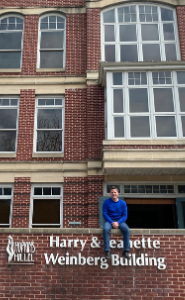
This year has been a difficult one for college students, many of whom never even made it back to campus. And for those that did, virtual classrooms and social distancing completely changed the traditional experience.
We reached out to area Hillel directors who have been working closer with students this year to make sure they felt connected. We asked them about the students, what they think next year might look like, and for those who are getting ready to apply, what they should look for when searching for a college.
Here is what Noam Bentov, executive director of Johns Hopkins Hillel, Rabbi Josh Snyder, executive director, Goucher Hillel, Lisa Bodziner, executive director, Towson Hillel and Rabbi Ari Israel, executive director, Maryland Hillel, had to say.
The pandemic has wreaked havoc on college this year. What is the most pressing concern you are seeing among students?
Josh: Connection. Our students want to be connected to one another, and to our campus. We have been 100% remote for a year, with a limited return to campus coming at the end of March. Most students have adapted quite admirably, but the one thing we are all missing is being connected with others. Any way we can safely do that – zooms, social media, podcasts, discord, care packages – we are doing because we know how much it matters to students.
Noam: Mental health and wellness. This year, Hopkins Hillel created educational experiences that focus on two main areas: mental/spiritual health and inclusivity.
Lisa: Certainly the emotional wellbeing of our students, as well as job acquisition and financial support.
What do you think next fall could look like?
Josh: We are hoping for a full return to campus in the fall, but we know it will be different from how things were prior to March 2020. If there’s one thing we’ve learned over the past year, it’s that we all can adapt. We will likely have to do our in-person events differently, limiting the number of people gathered in a space, serving food on an individual basis, things like that. One of the greatest assets of working with college students is unlimited creativity and irrepressible energy. I have no doubt that we and our students will figure out how to navigate the post-COVID landscape while creating more and more connections to Jewish life.
Lisa: I have no idea, I think everyone is going to want to be with people, and we are going to see increased numbers, leadership, student interest will be at an all-time high and just a true desire for students to get super engaged and have human contact and support.
Ari: A statement from University of Maryland President Daryll Pines from early February remarked that “The promise of multiple vaccines and widespread inoculation against the COVID-19 virus enables us to plan for a resumption of in-person classes for the fall 2021 semester and a return to more normal operations. Though we cannot forecast with certainty, we expect that the majority of our campus community will be eligible to get a COVID-19 vaccine before the beginning of the fall semester. Classes designed for in-person delivery are expected to be delivered face-to-face on campus this fall semester, and staff will be expected to resume their on-campus roles.” At Maryland Hillel, it is our hope that as the weather gets warmer and vaccine roll out continues, we can make our way back to “normal” operations as safety and regulations permit!
How has Hillel fit in this year and what do you expect next year?
Josh: Hillel is the foundation for Jewish campus life. Each college’s Hillel will be different as each college is different. What you can count on wherever you go is an opportunity to express your Jewish identity as an emerging adult, in a pluralistic community that is welcoming and positive. Goucher Hillel offers Shabbat and holiday programs, leadership opportunities, Jewish Learning and Israel Learning Fellowships, speakers, opportunities for service, Hillel to Go packages and events that are just fun! And that’s just what we’ve done while we have been 100% remote. Hillel is what you make of it – we empower students to guide programming based on their interests.
Noam: I expect next year will be a hybrid model of virtual and, when possible, in person programming will focus on strengthening the interconnectedness of Jewish students, mental health and wellness, Shabbat and holiday gatherings and celebrations, special experiences for first year students. Jewish learning cohorts, deep and nuanced Israel engagement and education and racial awareness and justice
Lisa: Students have been very interested in cohort learning, building community, taking on leadership roles and learning nuance. I think these are the hot topics: acceptance, tolerance and understanding for others.
Let’s shift gears. Students applying for college next year will have so many options. What should Jewish students look for when looking?
Noam: I suspect that for students for whom Jewish life is a top priority, they would want to go someplace with an active Hillel, one that offers services every week and a well-established infrastructure, programing and staff. As students visit colleges, in addition to taking a regular tour, it’s a great idea to visit Hillel, where students and staff will help families figure out the answers to questions they didn’t even know they had. Students might consider spending a Shabbat on campus, eating lunch in the kosher dining hall, or meeting with student leaders. It’s also helpful to visit the websites or social media pages of the Hillels or Jewish student organizations to see the most recent news and programming opportunities, as well as to learn something about the students comprising the Hillel board or serving in other positions.
Lisa: I’ve knowing that parents and potential incoming students look for a Hillel space when they are visiting campuses. As we know, every Hillel looks and feels different, some of us have space on campus, some of us homes, some of us building. Asking to schedule a time in advance with Hillel staff is always exciting and helpful for the Hillel pros.
How does Hillel fit in and what does it offer?
Noam: Hillel might be able to help students while they adjust to campus and beyond. students might ponder questions such as: Who are you as a person? Do you look forward to exploring a new Jewish community on your own, or do you need planned programs to get you out of your dorm? If you are at a Shabbat dinner and don’t know anyone, will you introduce yourself to people, or will you be uncomfortable being there without friends? Do you want to attend a school where you will meet a lot of other students who have similar religious/educational backgrounds to yours, or do you prefer to meet people who are completely different from those you grew up with?
Ari: When deciding which college to attend, it is important for Jewish students to feel as though they can be their true and unique selves on campus, without having to compromise parts of their identity. As a Big 10 university with over 5,500 Jewish students, Maryland Hillel serves a population that comes from a wide variety of upbringings and backgrounds. We have 25+ student groups, small in-person, virtual, or grab-and-go events as well as learning opportunities designed for everyone to come participate, connect, and engage—no matter if students are on campus or at home. Although the pandemic has changed what a normal freshmen year has looked like this year, Hillel is proud to craft opportunities for students to come together and meet their peers through our Kosher meal plan, themed Shabbat dinners, Freshmen Leadership nights, volunteering opportunities, coffee dates and game nights.
What about finding Jewish identity on campus and what are the students interested in?
Ari: Regardless of how students affiliate Jewishly, there is a community for everyone at Hillel. Maryland Hillel has three thriving student run religious groups through Hillel—Ruach (Reform), Ometz (Conservative), and Kedma (Orthodox). Additionally, we have three Jewish A Capella groups, a dance troupe, Israel education, Israel advocacy and Israel business clubs, social justice and mentoring organizations, and even more niche partnerships like Hillel Greek Life and the Maryland Hillel’s National Basketball Tournament.
There are also ways to get involved as a Jewish Terp outside of College Park—through a variety of opportunities to travel locally, regionally and abroad. Students can volunteer on an Alternative Spring Break trip or spend a summer interning in Israel on Onward Israel. An additional way to travel is to join a free ten-day Birthright Israel trip with Maryland Hillel—consistently one of the largest campus trips each year.
What about the BDS movement and other anti-Israel rhetoric? What do students need to know?
Josh: First, don’t worry. Your Hillel is there on campus to help students deal with these issues individually, and to address issues that come up systemically. If you aren’t sure about something and want to talk something out, reach out to a Hillel professional – we are there for you.
Second, there may be people on your campus – students, staff or faculty – who will speak out against Israel and/or Zionism in a way that makes you uncomfortable. In some cases, they may be raising legitimate issues that bear discussion and you can have a conversation where you share your viewpoints, even learn from each other. In some cases, it will not be a conversation, but a general putting down of Israel and/or Zionism without much nuance or opportunity for response, perhaps demonizing, delegitimizing, or applying a double standard to Israel that is not applied to other countries. I would call this latter form of speech anti-Israel rhetoric. Over time, you will learn to distinguish between legitimate critique and anti-Israel rhetoric, but the line can be fuzzy.
Third, you are more likely to encounter both in small ways – for example in conversations with peers or as part of an in-class discussion – than to encounter protests, inflammatory speakers, or BDS (movements to get part or all of the college to boycott, divest, and/or sanction Israel). It is probably in those daily interactions that you actually have the most power to affect change on a personal and lasting level. If you have a relationship with a peer who just said something that upset you, find a way to express to them what bothered you. Get help from a Hillel pro if you need it. If you and your friend can find a way to establish respect for one another and agree to disagree about some things, it’s a win.
Subscribe to our newsletter
The Associated is a home for everyone in the Baltimore Jewish community. We offer several email lists to help people find a community, engage with their peers and support Jewish journeys around the world.
Join Our Mailing ListAdd Impact to Your Inbox
Sign up for our newsletter
Subscribe to our newsletter
The Associated is a home for everyone in the Baltimore Jewish community. We offer several email lists to help people find a community, engage with their peers and support Jewish journeys around the world.
Join Our Mailing List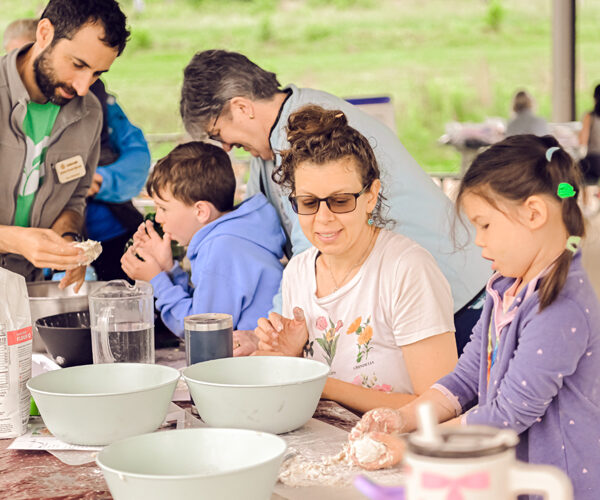



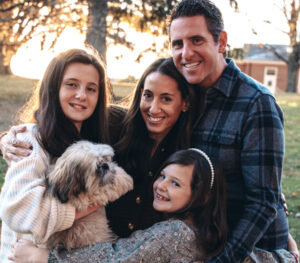

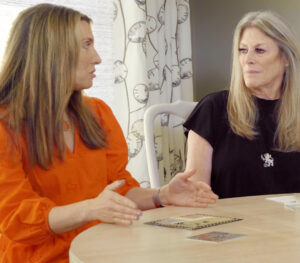
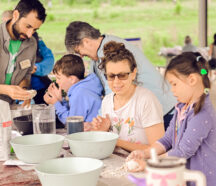


 Please Wait while we loading your video.
Please Wait while we loading your video.